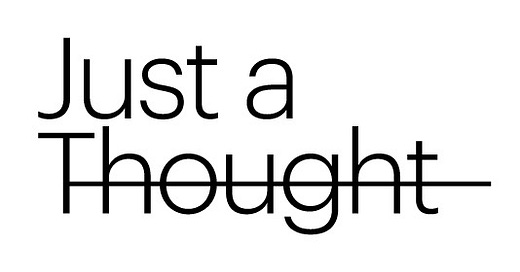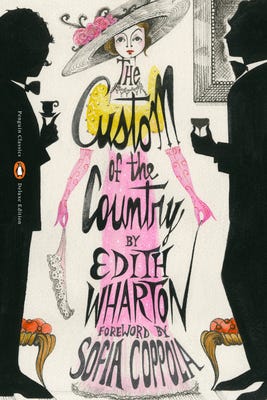This past week has been a hopeful watershed moment in the world of sports betting. Two more major headline stories broke about men in popular culture being addicted to sports betting. “Allegedly,” Bruno Mars is $50M in debt to his casino partner who pays him $1.5M per night to perform (meaning he’s “down” more than $50M). This story has since been refuted by the people who should absolutely 100% refute this, because their best chance to get the money back is making sure they trot the little fella out there to sing, dance, and pay back his bag.
A couple days later, a story broke that the LA Dodgers fired the face of baseball…..’s interpreter for stealing his money AND — wait for it — subsequently placing bets with said money. Definitely not the billionaire baseball boy betting himself, couldn’t be.
Also this week, the Athletic reported that the NBA is bringing live betting into its flagship digital product, League Pass, allowing fans to not only track live game odds through the app, but also “offering the ability to click through to wager through the NBA’s betting partners.”
Despite openly trying to quit sports, I have admired many leagues’ abilities to adapt the product for peak viewership. The NBA is as good as any at this. In the ~50 days since this tweet, the entire officiating of the league has changed, with the average points per game down double digits in the past two months. Sports are a nearly perfect case study of incentives and economics — you can learn everything you need to know about how the world really works from them. Which is why the news about their introducing a free needle program shouldn’t surprise anyone if it further addicts their customers and mints some new junkies.
The leagues are simply following the playbook Facebook wrote for them: when revenues are at all-time-highs, what then? Get your customers hooked on your supply. Social media’s answer to moon their revenues was to lean into the features that made us stay longer and come back more (including incentivizing polarizing content). Cable news went in the same direction, opting for culture war rage bait and partisanship over impartial reporting. But sports already had the polarization built in. It is literally tribal by design!
The NBA’s stated mission has been to “improve the product for the fans” which has always also meant “make it more attractive to partners.” This is the tradeoff we make: y’all let fucking Kia slap their logo on a $150 jersey made by literal slaves, so I can watch an 8-foot Frenchman look like a real-life Monstar against the best athletes in the world, while they all make $40 million per year. A fair tradeoff
This new move into peddling genuinely addictive/harmful vices doesn’t fit as easily into the “grow the game” bucket. If the league is our dealer, they were selling pure cocaine. But now some of the bags have fentanyl in them and downtown trust fund kids are dying after a cheeky bump. Perhaps one bright spot is that this new, reliable cash cow means the NBA might no longer bend the knee to the Chinese Communist Party anymore. 哈开玩笑
“I am telling people to stop gambling now because it's having a massive societal impact and it's being promoted by the leagues.” -sports betting legend, Haralabob
The informal and public nature of sports betting is genuinely concerning. If you don’t actively reject it at every corner, you might just become addicted yourself. $50 free if you sign up and place your first bet. What’s the worst that can happen? Besides, Kevin Hart* is in the ads!
*I’m increasingly convinced Kevin Hart is a psy op
Anecdotally, one in every six people I know has what I would call a casual addiction to sports betting, with a few of those bordering on genuine addiction. The actual data supports this too. And there’s just no way the “actual data'' overrepresents the problem which relies, in part, on self-reporting.
According to a 2022 survey by the National Council on Problem Gambling, the risk of problem gambling has doubled since 2018 from 3.6% to 7.6% among ages 18-34.
In a 2022 study of over 2000 college students, 67% of men reported sports betting in the past year (up from 26% in 2018). 14% met criteria for gambling disorder, a near tripling from 2018 levels.
A good friend of mine is probably one of the “best” sports bettors I know. He’s won big picking golf winners outright nearly a dozen times, sometimes at 50-or-more to 1. One time after picking a Phil Mickelson dub for a nearly $20K payday, I suggested that he must be up big over the course of his “career.” Not quite. “I’m probably about even.” This is a thing I’ve come to learn from all my sports betting friends: they’re all “probably about even.”
A few months ago, this same friend emailed a major sportsbook with whom he had an open account, and told them he was addicted to sports betting and would like them to close his account. The support representative told him they could do this, no problem, but it would be irreversible. He agreed. Five days later, he received a ~$10K refund to his credit card on file from the institution. No email, no mention of it, just a quite hush (re)payment to make him go away.
I’m just deducing, but what this signals to me is that the LTV of a user is sufficiently high that parting ways with a $10K loser is no stress to the bottom line. Crazy, right? Honestly, I hope you’ll give it a try. But the thing is, you won’t, because you, like one in every seven adult men in America, are addicted to sports betting.
The stories we all know are the nonchalant $20 parlays — a term that has no business being colloquially known — that seem to be the most interesting thing in the world to talk about for many men in their 20s and 30s. Six-leg parlays, by the way, have a -24.4% expected ROI — nearly a 10X worse expected outcome than spinning the roulette wheel. But unlike drug or alcohol addictions, which can be difficult to hide, you won’t hear the stories of people burning through their entire savings in a couple of clicks. For every twenty to one winner there is at least one guy opening new credit cards to max out and try to chase his losses.
There are a few societal norms that, when you stop and think about, are absolutely bonkers that we allow. But then of course you learn about lobbyists and how the people that make the laws are funded by the people who want to make sure certain laws are never made and it all adds up. We are in the early stages of this new behavior becoming too big to fail. Governments will rely on the tax revenue, constituents will be addicted to the product, and the companies we are all helping to build will make sure things stay status quo.
Instead of discussing the severe consequences, podcast hosts and media personalities are too busy cashing in on gambling endorsements to shed light on gamblings detrimental impact on society. —haralabob
Look, I decided to quit eating potato chips last year when I realized that the evil geniuses over at Big Chip are literal scientists making millions of dollars to come up with the perfectly salty and sweet poison crisp. (Unlike the fentanyl fuckers, they realized that the best addictive products don’t kill you, because a dead customer is the worst customer.) I just decided to opt out. Can’t outsmart me if I’m too dumb to play, idiots. That’s what you can do, too. You can literally just not play. In fact, that’s kind of your only option as an agentic person. It’s not easy. These are powerful forces paying serious money (to unserious fake celebrities) to get us addicted to their products. And they keep showing us that they'll put anything ahead of our individual or collective best interest.
Many thanks to industry-insider HL for collaborating on this piece
Radical Wolfe
After seeing it advertised on the marquee at the IFC Theater in the West Village on my way to school dropoff one morning, I’d been meaning to watch this documentary on the writer Tom Wolfe. While it wasn’t the big screen, the 8-inch screen on my Delta flight from LGA-DTW sufficed just fine. It’s a fun profile of the prolific writer (although I could’ve done without the Peter Thiel appearance), but it also made me nostalgic for the days when writers were more prominent figures in popular culture. (Any day I get to recall that Norman Mailer actually ran for mayor of New York City is a good day.) —Justin
The Custom of the Country, by Edith Wharton
In the recent New Yorker profile on Sofia Coppola, there’s an anecdote about how the director had been developing an adaptation of this Edith Wharton for Apple TV, but it fell through. (I’ve since heard from a friend that the project is back on.) That inspired me to read the book, and I was struck by how little has changed when it comes to social striving between Wharton’s time and today’s. —Justin
How to Win Friends and Hustle People
This is good reporting. This is the type of story I pay a very reduced rate to the New York Times for. Also, this was almost me. In 2019, I almost invested in the now hit-spot Jeans before I learned about the business practices of the guy who courted me, and also before I learned about the impending pandemic that would have been used as the excuse as to why I’ll never see that money again. Now, if I’m being honest, I wasn’t maybe going to invest $5K to see a real return. 25-year-old me thought it’d be cool to say I was part owner of a bar. Anyway, I put that $5K into $BTC and I’m so rich now. —Andrew









